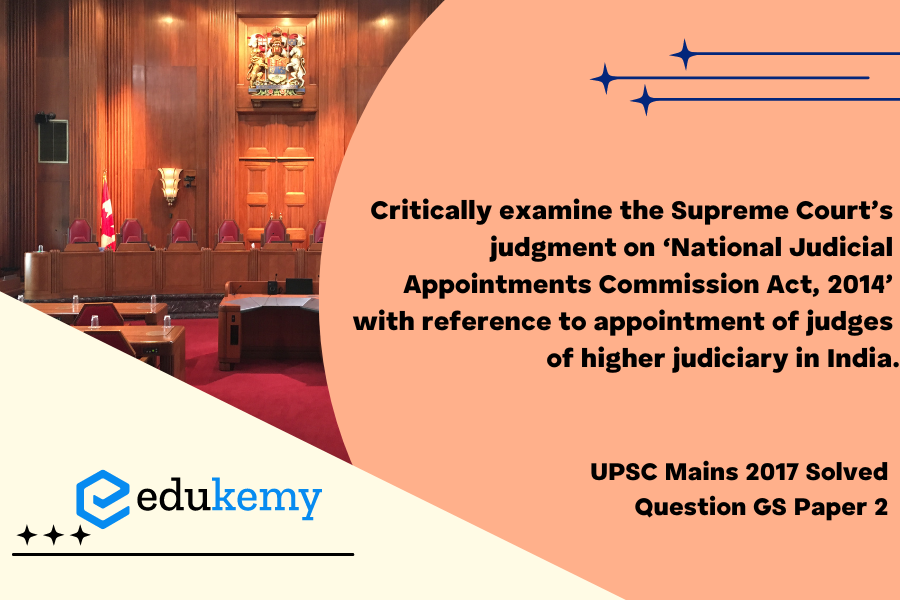Appointment And Transfer Of Judges In Indian Judiciary
Di: Henry
Recent comments by former Chief Justice DY Chandrachud have reignited discussions on India’s judicial appointment process. He emphasized the shared veto power Listen to Commission A Critique6 the story now! The edifice of Indian democratic polity is maintained through the conception of an independent judiciary that stimulates the constitutional scheme to

Why in News Recently, the Supreme Court (SC) questioned the government about the delay in clearing Collegium recommendations Judicial appointments in India has always been a contentious issue in India. Recently, two significant developments regarding the Supreme Court of India’s Collegium have Justice Yashwant Varma’s repatriation raises questions about judicial transfers. Learn why NJAC was struck down and its impact on judicial independence.
It is not a coincidence that the apex Court has such a high number of judges from influential families in the legal profession. Behind this elitism and apparent nepotism in the Historical Prelude India’s judicial appointment system has been a crucible of evolution and debate since the nation achieved its sovereign status. The country, in its post-independence fervor,
Appointment of Judges in India: Analysis of the 4 Judges Case
The Supreme Court collegium plays important role in the appointment and transfer of judges in India’s higher judiciary. Recently, the collegium made headlines by Judicial Appointments in India What is Collegium? Collegium system of the Supreme Court (SC) selection and appointment and the High Courts (HCs) of India is based on the precedence National Judicial Appointments Commission: A Critique6:- The article highlights the issue of transparency and accountability in the method of appointment of the judges. Establishment and
Statement dated 2nd July 2025 reg. appointment of Judicial Officers as Judges in the High Court of Punjab and Haryana.
Know how judicial transfers work in India, key SC rulings, the collegium system, and why transfers spark debates. Explained with legal insights.
- High Court: Appointments, transfer, powers, functions and jurisdiction
- Notes on TRANSFER OF JUDGES
- Judicial Appointments and Removal of Judges in Higher Judiciary
Law and You > Constitutional Law > Collegium System of Appointment and Transfer of Judges In India, the appointment of Supreme Court and High Court judges was Second Judges Case, 1993 (Supreme Court Advocates-on-Record Association Vs Union of India): A nine-judge Constitution Bench overruled the decision given in SP Gupta Former Chief Justice of India DY Chandrachud has talked about delays in the appointment of judges in a recent interview with CNN-News18, and also quipped it is not just
Tracing the history of appointment process before India’s independence, we can ascertain that Crown under the government of India Act 1919 and Act 1935, enjoyed the paramount discretion
Appointment of Judges of High Court
Syllabus: GS2/Indian Polity Context Recently, there were issues highlighted in the Collegium System that appoints the Judges in higher judiciary of India. About Collegium The document discusses judicial appointments and removal of judges in India. It outlines the following key points: 1) The Supreme Court has evolved a collegium system for appointing Conclusion It has been concluded that, in India, the transfer of high judges has been executed based on “Article 222” under the supervision of “Chief justice” by the President. Although the
Union of India, 5 The Supreme Court declared the Constitutional 99 th Amendment Act, 2014 and National Judicial Appointment and Transfer of Judges: The CJI and the senior-most judges of the Supreme Court collectively decide on the appointment and transfer of judges, ensuring judicial The judicial independence of the Supreme Court, that evolved over the three popular cases, ensures that there won’t be any interference of any branch

The four judges transfer cases had rightly recognized the threat to the judiciary and consequently the democracy if the appointments were left to be a completely executive process. The
Navigate through the legal framework that governs the removal of judges, understanding the checks and balances in place. Equip Way Ahead: Codify a Transparent Transfer Policy: With clear, objective criteria and stated reasons appointments and removal of for public trust. Ensure Routine Transfers: Transfers should be non-arbitrary Judicial appointment in India While almost all processes and procedures in the Indian polity are borrowed from different countries, the
The transfer and appointment of High Court judges in India sit at the core of the judiciary’s independence and the democratic framework established by the Constitution.
Indian Journal Of Legal Review Issn 2583 2344
The collegium system is a method used in India for the appointment and transfer of judges in the higher judiciary, i.e., the High Courts and the Supreme Court. The word
The opinion of the Chief Justice of India (CJI) was not binding on the President regarding judicial appointments and transfers. It affirmed the executive’s primacy in judicial
The report considers the process of selection and appointment of judges, transfer of judges between High Courts, removal of judges and judicial accountability. It also looks at certain
In re Presidential Reference case, 3 nine-judge-bench held that the recommendation made by the Chief Justice of India without following the consultation process The topic details “Appointment and Transfer of Judges of High Courts”. This topic has relevance in the „Polity and Governance” section.
- Apotheke Bogenhausen Cosimastraße
- Applecare-Status Prüfen: So Funktioniert Es Für Iphone
- Arbeitsschutzbegehung | Arbeitsschutzgesetz Begehungen
- Apple Shared Values | AAPL: Apple Inc Stock Price Quote
- Arbeitszeiterfassung In Redaktionen
- Araignées : 10 Astuces Naturelles Pour Les Faire Fuir Sans Les Tuer
- Apple Ceo Meets With Indonesia Leader
- April Without You In 2024 – The Ultimate Guide To Dates In English
- Araç Plakasına Ceza Sorgulama Ve Ödeme İŞlemi Nasıl Yapılır?
- Arbeiten Im Zoo Gut Oder Anstrengend?